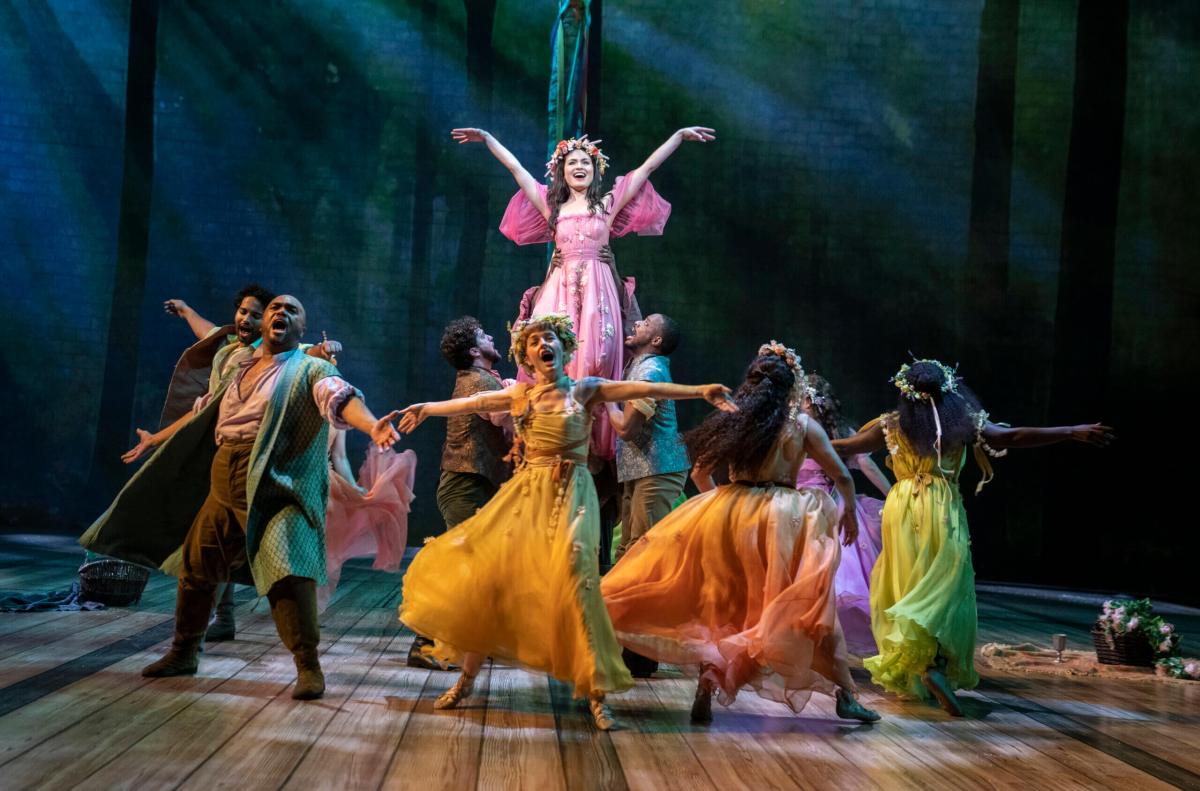And the Tony Award for biggest disappointment (both literally and figuratively) of the theater season goes to Lincoln Center Theater’s highly-anticipated Broadway revival of Lerner & Loewe’s “Camelot,” the beloved but lumbering 1960 musical which, although admittedly in need of a facelift, has not benefited from Aaron Sorkin’s revised book.
This marks the fourth big budget revival of a classic musical that Bartlett Sher has directed for LCT, following Rodgers & Hammerstein’s “South Pacific” (2008) and “The King and I” (2015) and Lerner & Loewe’s “My Fair Lady” (2018).
Personally speaking, despite its flaws, I love “Camelot,” which is based on T.H. White’s “The Once and Future King” and dramatizes the medieval myth of King Arthur, Queen Guenevere, Lancelot, and Merlyn and the rise and fall of the Knights of the Round Table. Even if the original book was long-winded and uneven, much of it is deeply moving (especially the first and final scenes), and the score (including the title song, “If Ever I Would Leave You,” and “I Loved You Once In Silence”) is glorious.
The original Broadway production (starring Richard Burton and Julie Andrews) received mixed reviews and was rescued at the box office by an appearance on the “Ed Sullivan Show.” It then became identified with the presidency of John F. Kennedy (who was reportedly a fan of the musical), with comparisons made between the tragedies of Arthur and Kennedy. The show’s reputation subsequently suffered due to a disastrous 1967 film version and cheesy revivals starring Richard Harris (who played Arthur on film) and Robert Goulet (the original Lancelot).
The idea of Sorkin revising “Camelot” was intriguing and promising. After all, “The West Wing” was marked by a similar kind of political idealism, and Sorkin’s recent stage adaptation of “To Kill a Mockingbird” was well-received. Unfortunately, his new book (which removes all magical elements, turns Morgan Le Fey as a scientist, and questions how Arthur could have pulled the sword from the stone) is too clumsy and self-conscious in its attempt to draw contemporary parallels and critical viewpoints. Sorkin has also seriously disrupted the integration of the songs and dialogue.
There is still much to savor in Sher’s lavish production, including a 30-piece orchestra playing the score and Andrew Burnap’s (“The Inheritance”) deeply-felt performance as Arthur. Phillipa Soo (“Hamilton”) struggles with the high soprano songs but makes for a headstrong Guenevere full of personality. Jordan Donica (“My Fair Lady”) can be stiff but is nevertheless an imposing Lancelot with a robust voice. The period visual design is lean and effective, particularly the suits of armor and cathedral-like arches towering above the stage.
In an ideal but admittedly impractical world, LCT would enlist multiple playwrights to try to rewrite the book of “Camelot,” and each book could then be performed in rotation until a satisfying one is found. But more realistically, with further development (including edits to the book and refining of the performances), this revival could get much better. Perhaps “Camelot” does not need to end in tragedy after all.
Vivian Beaumont Theatre at Lincoln Center, 150 W. 65th St., lct.org.







































